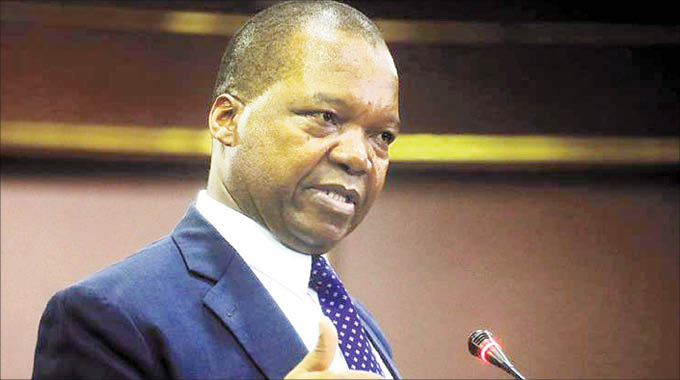COMMENT: Sanctions’ adverse impact is wider, deeper

TODAY Sadc sends a strong, collective message against the sustenance of illegal Western sanctions on Zimbabwe.
Two decades of bi-lateral sanctions by the European Union (EU), Britain and the US have ravaged our economy – shutting down industry and creating untold hardships for ordinary citizens. In August 2019, Sadc leaders, meeting in Dar es Salaam, Tanzania, designated October 25 of every year as Sadc Anti-Sanctions Solidarity Day. On that day from that year on, Sadc countries have been staging various activities to show their opposition to the illegal embargo, detailing how they have negatively impacted the people and demanding that they be removed unconditionally and immediately.
Therefore, today is the third anniversary of the Sadc Anti-Sanctions Solidarity Day although the campaign against the punitive measures had been going on since they were imposed in 2001.
This year’s theme is “Friend to all. Enemy to none: Forging ahead and enhancing innovation and productivity in adversity of sanctions.”
Information, Publicity and Broadcasting Services Minister, Monica Mutsvangwa said:
“We have speeches; pre-recorded by regional leaders which will be broadcast to the nation as well as an address by His Excellency, the President. Captains of industry, Zanu-PF as well as other organisations also have pre-recorded speeches calling for the removal of sanctions.”
The key speech will be made live by President Mnangagwa today. As part of the anti-sanctions drive, there will be a musical gala at the Harare International Conference Centre featuring top local artistes tonight.
UN special rapporteur on the negative impact of unilateral coercive measures on the enjoyment of human rights, Ms Elena Douhan is in the country on a 10-day mission. She is collecting information from a number of people and interested groups among them the Government, civil society, youths and women. It is good that she is here on this day.
The sanctions discourage the free flow of foreign direct investment (FDI) especially from the rich West as potential investors cannot transfer money from their bases to a country sanctioned by the US, which controls the global economy. They are fearful that if they attempt to do so, they would be identified, heavily sanctioned and their funds confiscated.
As a result, FDI into our country is down to a trickle. International financial institutions aren’t allowed to do business with local industry or to facilitate the transfer of finance to our economy. Multi-lateral financial institutions – the International Monetary Fund, World Bank and others – are under US orders not to agree to provision of financial support to Zimbabwe. The sanctions have led to closure of factories. Hundreds of thousands of jobs have been lost. Poverty among the people has grown.
An infrastructure gap of more than US$30 billion has arisen after at least 500 projects were mothballed over the past 20 years of sanctions.
The manufacturing sector’s performance has fallen drastically. As local economic activity has taken a hit on the back of the embargo, more than 3, 6 million citizens have emigrated, hoping for jobs and better lives.
The halting of provision of development finance has resulted in the country losing US$150 million yearly, funds that would have been used to complement Government resources in the development of public infrastructure, provision of health services and food to the vulnerable.
The adverse impact of the unjust embargo is wider and deeper. Our people – the ordinary worker; the poor granny in Makokoba, in Binga and Tsholotsho; the young girl and boy who cannot go to school because his or her parents lost a job at sanctions-hit Cold Storage Company and Zisco; and the able-bodied but worn-out man and woman who is forced to scrounge for a living as a fruit vendor – are suffering the worst due to the sanctions.
“To separate the Zimbabwean people from Zanu-PF,” then Assistant Secretary of State on African Affairs, Chester Crocker, told the US Senate in 2001, “we are going to have to make their economy scream, and I hope you senators have the stomach for what you have to do.”
It is clear from the foregoing that the obvious target of the illegal measures are “the Zimbabwean people” whose economy must be made to “scream” so that they can be separated from Zanu-PF.
Indeed, the economy has been screaming since 2001. The people of Zimbabwe are screaming too with no jobs, no incomes; only poverty.
We, therefore, denounce the sanctions in the strongest of terms because they are illegal, harmful to the economy and make it impossible for the people to enjoy their human rights. We call on the US, EU and Britain to unconditionally and immediately remove them so normal lives can return to our country.











Comments